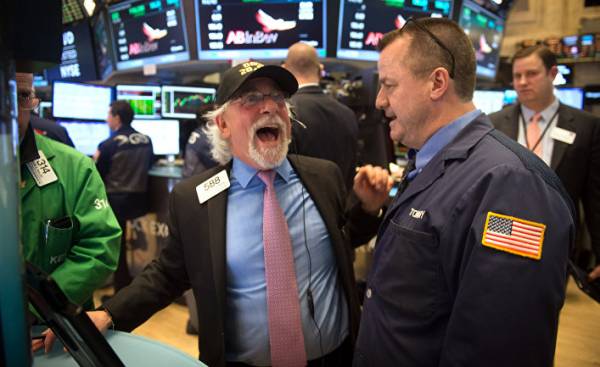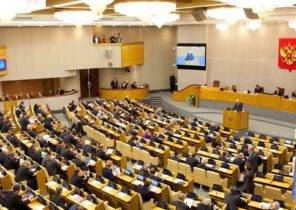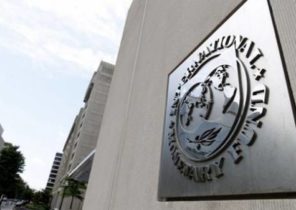
Starts Brakcet, Netherlands vote, the US is facing bankruptcy. In the coming days the world can change. Perhaps it will affect our money.
Another 48 hours, and the world will be a little different. What will happen over the next two days, probably will have consequences. For the global markets — and thus for our money. For German policy, which, perhaps, are faced with an unprecedented challenge. Europe can change its face, as a world power is in danger of becoming bankrupt.
Starts Brakcet
About Brexia talking to June 2016, but in reality it does not exist yet. There is only the will of the people expressed in the referendum: the British intend to leave the European Union. Official application for the country’s withdrawal from the EU under article 50, still not filed. But now the situation is getting serious. The process starts. Yesterday the British Parliament passed a law to Bracito, according to which the government can start to exit from the European Union. When Queen Elizabeth II would approve of the law, Prime Minister Theresa may to request access to the Council of the EU. Most experts predict that may will begin formal negotiations on secession before the election in the Netherlands, but only at the end of March.
“Now will be a hard stage,” says James McCormack (James McCormack) from rating Agency Fitch. The British were in a difficult situation. “They have no control over the subject matter of the negotiations or their order.” It is also unknown what the expense of Europe will expose the British for the exit.
Today, debt has become a problem for the island. The state and private households are living beyond their possibilities. The ratio of public debt is around 90% of economic production. Private households also have a huge debt. As a result, in the current balance of the country there is a gap — about 5% of economic output. It needs to be filled with foreign capital. If investors lose confidence, there is a threat of financial crisis in the 1970-ies, when it took the intervention of the International monetary Fund. So much will depend on how investors react to Prexit. Deutsche Bank, for example, expects that after application to output the value of the pound could decline by about 6%.
Unstable The Netherlands
The vote in the Netherlands is the beginning of the European year of the election. The result will set the tone for the coming weeks and months. Recently, the current Prime Minister mark Rutte (Mark Rutte) was a bit ahead, but now right-wing populist Geert Wilders (Geert Wilders) with his party the freedom Party (PVV) has benefited from open conflict with Turkey.
And even if the winner of the elections, Wilders ultimately, as expected, will not have a majority in the government, in the EU fear of a Domino effect. If the populist will get the most votes in the country, which is one of the founders of the EU, it will allow to power the right. Then the idea of the presidency of marine Le Pen in France will scare people even less.
The political situation in the Netherlands unstable and without Wilders. According to recent polls, the three leading parties together will receive only 40%, and in the elections four years ago, they could count on 60%. Therefore, the new government will need at least four parties. For many years, the Netherlands was considered a guarantor of stability, now everything has changed. It shows the so-called index Nexit research company Sentix. According to him, investors estimate the probability of exit of the Netherlands from the Euro zone, 3.6%. This is well above long-term average, which was less than 1%.
The curse of the fed
On Wednesday evening at 19 o’clock German time, Janet Yellen (Janet Yellen) will make something that may not suit the world: it will raise interest rates. Because the support material of the world economy is cheap money. If the most important Central Bank in the world will raise the price of the most important currencies in the world, it is not impossible side effects.
The financial markets call it the curse of the Federal reserve, having in mind that before each crash in the stock market were rising interest rates. 1974, 1987, 2000 or 2008, every time the Federal reserve raised interest rates, sooner or later there was intensive sale. Today, the risk is particularly high. First of all, the US market after the financial crisis faced only with higher prices.
Investors comfort themselves in vain illusions. The index of fear Vix is approaching its multi-year low. But that may soon lead to frustration, especially in the case of when the US Central Bank signals more than three consecutive increases this year.
It could also derail political plans of President Donald trump, which relies heavily market boom. The program to stimulate the economy in the trillions of dollars which should be financed mainly on credit, can be realized only with the help of cheap money.
The prohibition of debt in America
In fact, Thursday trump will no longer be able to borrow a penny. On Wednesday expires important time. Then will come into force the official debt limit, which currently stands at over 18 trillion dollars. While currently, the deficit amounts to almost 20 trillion. However, the introduction of the debt ceiling was postponed in October 2015 prior to March 15, 2017.
Thursday the U.S. Treasury will no longer be able to sell new bonds, that is, the government will have to do with money from current income. It wouldn’t be the first time a limit raise at the wrong time. Debt limit and its increase is always a political question. In the past even had to close the government because it couldn’t pay employees.
Although it never reached the Americans are unable to pay their debts on time, that is bankrupt. However, the dispute over the debt limit in the summer of 2011 deteriorated to such an extent that the rating Agency S&P revised the highest score for the Americans. Congress raised the debt ceiling in August — two days before the Finance Ministry has run out of money to meet the obligations.







